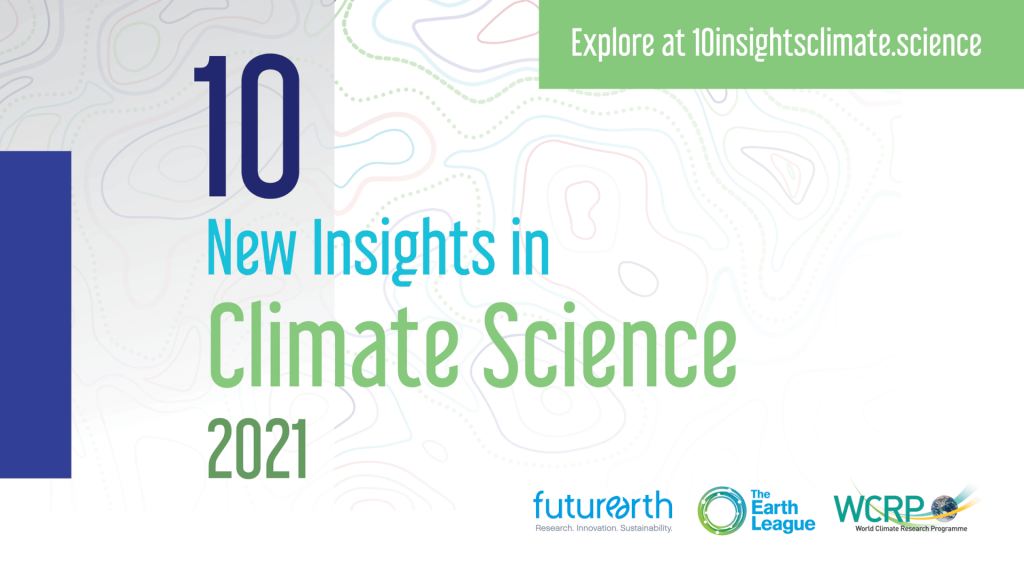
The Glasgow Climate Pact, agreed this weekend, is an important signal that countries around the world must continue to support the ambition of the Paris Agreement to stabilize warming at 1.5°C by the end of the century. However, to turn this ambition into a reality, unprecedented action to reduce emissions must begin immediately.
“The COP26 outcome has kept the ambition of Paris alive – just. Now urgent attention must turn to implementing the deep emissions reductions required to stabilize warming under 1.5˚C. Change is hard, and it will require behavioural, societal and economic changes and that means making societal decisions about trade-offs. Listening and responding to the science is essential in every sustainability risk we face.”
Peter Gluckman, President, International Science Council
The world is still not on track to meet the Paris Agreement. Even in the light of current policies and commitments, the Intergovernmental Panel on Climate Change (IPCC) has made clear that without deep reductions in CO2 and other greenhouse gas emissions, global warming of 2˚C will be exceeded in this century(AR6 WG1). Further analyses published by UN Environment (UNEP), by the International Energy Agency(IEA) and by the Climate Action Tracker (CAT) in the weeks ahead of the COP all estimate that even if countries meet their commitments for 2030, the result would still be around 2.4˚C of warming. Any delay in implementing emissions reductions will make the target of 1.5˚C harder to reach.
“Official commitments made in Glasgow are welcome advances towards limiting global warming to 1.5 degrees but short- and long-term ambitions need to accelerate in order to achieve goals set in Paris. For a 66% chance of success, reductions of 4Gt per year are needed starting now, with higher reductions required for every year of delay. Tipping elements in the Earth system are a real and imminent risk. Deep social and technological transformations to 1.5 degree lifestyles are needed, guided by science.”
Wendy Broadgate, Global Hub Director, Sweden, Future Earth
The COP26 meeting has seen young people, civil society and Indigenous activists, together with many in the science community, raising their voices to keep up the pressure on countries and companies, and to call for meaningful change.
“COP 26 has definitely built on the momentum for change from Paris – clearly accepting 1.5 degrees as the temperature limit that should not be exceeded. However, immediate work needs to start on further accelerating this momentum through greater inclusion and a firm delineation of specific actions to be taken to ensure that we do stay within the 1.5 degree goal. It is also imperative to ensure that we ‘leave no one behind’ at least in this transformation process – within countries and across.”
Leena Srivastava, Deputy Director General for Science, International Institute for Applied Systems Analysis (IIASA)
As a first step, the UN Secretary General’s request for countries to set stronger Nationally Determined Contributions (NDCs) from 2022 is vital recognition of the kind of action required.
But current and future commitments must also be translated into real policies, implemented and monitored. Steps to allow greater scrutiny of national climate pledges and to support transparency around NDCs are a welcome development and require adequate support for the kind of granular scientific knowledge and data required to measure and analyse climate commitments, and to track performance.
As the IPCC has made clear, warming of the climate system is unequivocal: what is now required is political will and broad-based support for the changes required. There is a wealth of scientific knowledge and technology already available to support stronger commitments, and to understand how transformations can occur.
The scientific community as represented by the ISC’s Members, Affiliated Bodies including Future Earth and the World Climate Research Programme and wider network stands ready to support efforts.
Phasing out greenhouse gas emissions, mitigating climate risks and ensuring a safe and just future for all, and in particular for those most vulnerable to the effects of climate change, demands attention to the systemic issues that can help to catalyse change. Working towards these commitments at the same time as the goals of the 2030 Agenda will require increasing support for sustainability science, and collaboration between the science community and other stakeholders, driven by a common mission, and leaving no-one behind.
“The ISC is launching a Global Commission, led by Irina Bokova and Helen Clark, to deliver on the ISC’s Unleashing Science report, with a roadmap to action to address the existential risks to humanity head on.”
Peter Gluckman, President, International Science Council
The Unleashing Science report provides a priority action agenda for the science required to act effectively in the face of urgent and existential risks to humanity.
This agenda includes five priorities:
“The one thing that Glasgow showed us is that science has a lot of work to do in the next decade. COP promises don’t go far enough to limit the global temperature rise to 1.5°C, but we are at least on the path – and the pathway that we take to lower emissions matters. We need to know what to expect and what a 3-degree or 4-degree warmer world look like before we find ourselves there. The ISC priority action agenda will look at what we can do to avoid the very worst risks that we face.”
Detlef Stammer, Chair, Joint Scientific Committee, World Climate Research Programme (WCRP)
There is no time to waste. It is urgent. The time is now. We are ready.
Stand with the ISC. Stand with Science. Join our community or join as a member.

10 New Insights in Climate Science 2021
Ten New Insights in Climate Change, published during COP26 by Future Earth, the Earth League and the World Climate Research Programme (WCRP), summarizes the latest science on the pressing and interconnected risks of our climate crisis, as well as on the action needed to curb dangerous change.